#Education 2030
Explore tagged Tumblr posts
Text
Bolstering Human Agency in Education. Responsible AI Use in Learning and Teaching.

Under the theme “AI and Education: Preserving Human Agency in a World of Automation,” the 2025 International Day of Education will be celebrated on January 24th. This year’s focus is on how education can empower individuals and communities to navigate, understand, and influence technological advancements while ensuring human agency remains central in the age of automation.
UNESCO’s Director-General, Audrey Azoulay, has dedicated International Education Day 2025 to exploring the opportunities and challenges posed by artificial intelligence. She urges UNESCO Member States to prioritize training for both teachers and students on the responsible use of AI in education.
Egypt is focusing on integrating AI and digital tools into its education system as part of its broader commitment to the 2030 Agenda. With initiatives focusing on digital transformation and AI-driven curriculum reform, the country aims to modernize schools and provide capacity-building programs for educators. Recognizing the vital role of teachers as drivers of progress, Egypt is investing in equipping them with the skills needed to adapt to technological advancements.
#education#sdg4#artificial intelligence and education#education 2030#capacity-building programs#digital transformation#AI-driven#AI and digital tools#unesco#international day of education
0 notes
Text
UN & WEF - Sustainable development control plan means.
Corporate control of all Earth’s inventory.
▪️Land
▪️Water
▪️Minerals
▪️Plants
▪️Animals
▪️Construction
▪️Production
▪️Food
▪️Energy
▪️Information
▪️Humans
Corporations & NGO’s supersede you. 🤔
#pay attention#educate yourselves#educate yourself#knowledge is power#reeducate yourselves#reeducate yourself#think about it#think for yourselves#think for yourself#do your homework#do your own research#do some research#do your research#ask yourself questions#question everything#agenda 2030#sustainable development#new world order#news#government corruption#hidden history#history lesson#history
358 notes
·
View notes
Text
https://digitalsmartcity.in/how-connected-communities-are-transforming-lives-across-the-globe/
0 notes
Text
Ewiva porta la mobilità elettrica nelle scuole superiori con il progetto “E-MOBILITY@SCHOOL”. Milano
Un viaggio educativo per oltre 12.500 studenti italiani verso la sostenibilità e la transizione energetica
Un viaggio educativo per oltre 12.500 studenti italiani verso la sostenibilità e la transizione energetica La mobilità elettrica entra in classe Milano, 20 novembre 2024 – Ewiva, la joint venture tra Enel X e Gruppo Volkswagen, ha lanciato il progetto educativo “E-MOBILITY@SCHOOL – Il viaggio elettrizzante inizia oggi”. L’iniziativa, patrocinata dal Ministero dell’Ambiente e della Sicurezza…
#agenda 2030#Alessandria today#arte e sostenibilità#Cambiamento climatico#città sostenibili#contest creativo#creatività studentesca.#Crediti formativi#Daniela Biscarini#E-MOBILITY@SCHOOL#Educazione Ambientale#Educazione civica#educazione green#Enel X#Energia pulita#Ewiva#Futuro sostenibile#giovani e ambiente#Google News#Gruppo Volkswagen#iniziative educative#Innovazione tecnologica#italianewsmedia.com#kit didattico digitale#mobilità e ambiente#mobilità elettrica#Mobilità sostenibile#Neways#opere murali#Pier Carlo Lava
0 notes
Text
Empowering Youth: How Digital Innovation is Transforming Sustainable Development

View On WordPress
#2030 deadline#artificial intelligence#case study infographics#Climate Action#community celebration#Community Impact#Community Involvement#data analytics#data-driven#digital advancements#digital economy#digital engagement#digital inclusion#digital initiatives#digital initiatives for SDGs#digital innovation#digital literacy#digital natives#digital outreach#digital progress#digital resources#digital skills#digital technologies#digital tools#digital transformation#economic impact#educational impact#educational resources#environmental impact#environmental sustainability
1 note
·
View note
Text
Launch of the SIGI 2024 SIGI Regional Report for Southeast Asia: Time to care (CSW68 Side Event).
Watch the Launch of the SIGI 2024 SIGI Regional Report for Southeast Asia: Time to care (CSW68 Side Event)!
Care systems in Southeast Asia rely heavily on women's unpaid work. But demographic, educational, and economic shifts are increasing the demand for paid care. What does this mean for women in the region - and what challenges lie ahead? This event will explore the care economy's transformative power to accelerate women's economic empowerment, while strengthening Southeast Asia's resilience to external shocks.
Hosted by Korea, the OECD Development Centre is organising a CSW68 Side-event to launch the SIGI 2024 SIGI Regional Report for Southeast Asia: "Time to Care". The side-event aims to delve into the root causes of gender inequality in Southeast Asia and explore potential solutions, particularly in formalising the care sector.
The SIGI 2024 SIGI Regional Report for Southeast Asia: Time to Care underscores that discrimination remains most pronounced within the family. Traditional gender roles continue to confine women to caregiving responsibilities, while men are expected to assume the roles of family providers and decision-makers.
Hosted by Korea, the OECD Development Centre is organising a CSW68 Side-event to launch the SIGI 2024 SIGI Regional Report for Southeast Asia: "Time to Care". The side-event aims to delve into the root causes of gender inequality in Southeast Asia and explore potential solutions, particularly in formalising the care sector.
The SIGI 2024 SIGI Regional Report for Southeast Asia: Time to Care underscores that discrimination remains most pronounced within the family. Traditional gender roles continue to confine women to caregiving responsibilities, while men are expected to assume the roles of family providers and decision-makers.
The event will feature a panel discussion where speakers will share insights on how gender-transformative policies and innovative programmes in the care sector can challenge established gender norms, promote women's rights, foster gender equality, and drive sustainable development. The event will also explore pathways for collective action, involving policy makers, lawmakers, grassroots organisations, philanthropy, and the wider development community. Together, these stakeholders can accelerate progress toward realising Sustainable Development Goal 5 and the 2030 Agenda for Sustainable Development in the Southeast Asian region.
Related Sites and Documents
Concept note and programme Flyer
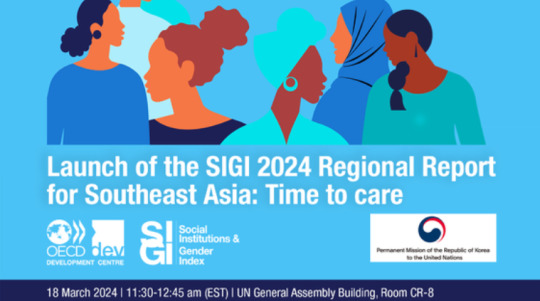
#OECD Development#Social Institutions and Gender Index#Southeast Asia#demographic shifs#educational shifs#economic shifts#side-events#women's economic empowerment#resilience to external shocks#care economy#women's unpaid work#Sustainable Development Goal 5#sdg5#agenda 2030#Time to Care#gender inequality#csw68#women's rights#caregiving responsibilities#family providers#decision-makers
0 notes
Text
Here's the top 2 stories from each of Fix The News's six categories:
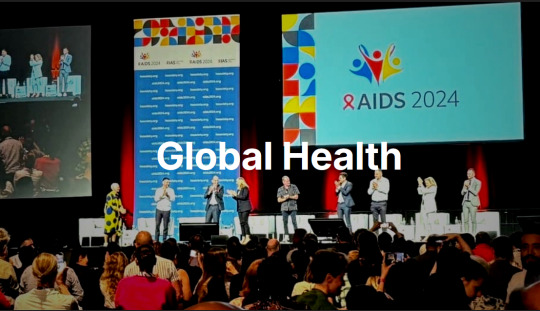
1. A game-changing HIV drug was the biggest story of 2024
In what Science called the 'breakthrough of the year', researchers revealed in June that a twice-yearly drug called lenacapavir reduced HIV infections in a trial in Africa to zero—an astonishing 100% efficacy, and the closest thing to a vaccine in four decades of research. Things moved quick; by October, the maker of the drug, Gilead, had agreed to produce an affordable version for 120 resource-limited countries, and by December trials were underway for a version that could prevent infection with just a single shot per year. 'I got cold shivers. After all our years of sadness, particularly over vaccines, this truly is surreal.'
2. Another incredible year for disease elimination
Jordan became the first country to eliminate leprosy, Chad eliminated sleeping sickness, Guinea eliminated maternal and neonatal tetanus, Belize, Jamaica, and Saint Vincent & the Grenadines eliminated mother-to-child transmission of HIV and syphilis, India achieved the WHO target for eliminating black fever, India, Viet Nam and Pakistan eliminated trachoma, the world’s leading infectious cause of blindness, and Brazil and Timor Leste eliminated elephantiasis.
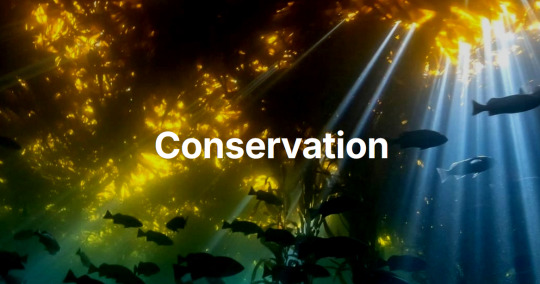
15. The EU passed a landmark nature restoration law
When countries pass environmental legislation, it’s big news; when an entire continent mandates the protection of nature, it signals a profound shift. Under the new law, which passed on a knife-edge vote in June 2024, all 27 member states are legally required to restore at least 20% of land and sea by 2030, and degraded ecosystems by 2050. This is one of the world’s most ambitious pieces of legislation and it didn’t come easy; but the payoff will be huge - from tackling biodiversity loss and climate change to enhancing food security.
16. Deforestation in the Amazon halved in two years
Brazil’s space agency, INPE, confirmed a second consecutive year of declining deforestation in the Brazilian Amazon. That means deforestation rates have roughly halved under Lula, and are now approaching all time lows. In Colombia, deforestation dropped by 36%, hitting a 23-year low. Bolivia created four new protected areas, a huge new new state park was created in Pará to protect some of the oldest and tallest tree species in the tropical Americas and a new study revealed that more of the Amazon is protected than we originally thought, with 62.4% of the rainforest now under some form of conservation management.

39. Millions more children got an education
Staggering statistics incoming: between 2000 and 2023, the number of children and adolescents not attending school fell by nearly 40%, and Eastern and Southern Africa, achieved gender parity in primary education, with 25 million more girls are enrolled in primary school today than in the early 2000s. Since 2015, an additional 110 million children have entered school worldwide, and 40 million more young people are completing secondary school.
40. We fed around a quarter of the world's kids at school
Around 480 million students are now getting fed at school, up from 319 million before the pandemic, and 104 countries have joined a global coalition to promote school meals, School feeding policies are now in place in 48 countries in Africa, and this year Nigeria announced plans to expand school meals to 20 million children by 2025, Kenya committed to expanding its program from two million to ten million children by the end of the decade, and Indonesia pledged to provide lunches to all 78 million of its students, in what will be the world's largest free school meals program.
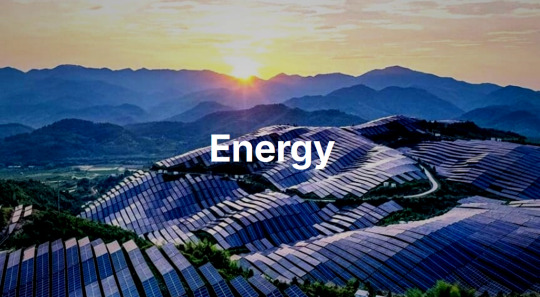
50. Solar installations shattered all records
Global solar installations look set to reach an unprecedented 660GW in 2024, up 50% from 2023's previous record. The pace of deployment has become almost unfathomable - in 2010, it took a month to install a gigawatt, by 2016, a week, and in 2024, just 12 hours. Solar has become not just the cheapest form of new electricity in history, but the fastest-growing energy technology ever deployed, and the International Energy Agency said that the pace of deployment is now ahead of the trajectory required for net zero by 2050.
51. Battery storage transformed the economics of renewables
Global battery storage capacity surged 76% in 2024, making investments in solar and wind energy much more attractive, and vice-versa. As with solar, the pace of change stunned even the most cynical observers. Price wars between the big Chinese manufacturers pushed battery costs to record lows, and global battery manufacturing capacity increased by 42%, setting the stage for future growth in both grid storage and electric vehicles - crucial for the clean flexibility required by a renewables-dominated electricity system. The world's first large-scale grid battery installation only went online seven years ago; by next year, global battery storage capacity will exceed that of pumped hydro.
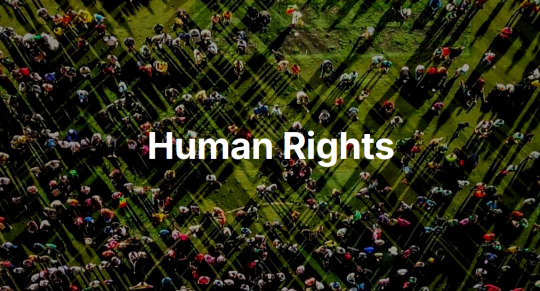
65. Democracy proved remarkably resilient in a record year of elections
More than two billion people went to the polls this year, and democracy fared far better than most people expected, with solid voter turnout, limited election manipulation, and evidence of incumbent governments being tamed. It wasn't all good news, but Indonesia saw the world's biggest one day election, Indian voters rejected authoritarianism, South Korea's democratic institutions did the same, Bangladesh promised free and fair elections following a 'people's victory', Senegal, Sri Lanka and Botswana saw peaceful transfers of power to new leaders after decades of single party rule, and Syria saw the end of one of the world's most horrific authoritarian regimes.
66. Global leaders committed to ending violence against children
In early November, while the eyes of the world were on the US election, an event took place that may prove to be a far more consequential for humanity. Five countries pledged to end corporal punishment in all settings, two more pledged to end it in schools, and another 12, including Bangladesh and Nigeria, accepted recommendations earlier in the year to end corporal punishment of children in all settings. In total, in 2024 more than 100 countries made some kind of commitment to ending violence against children. Together, these countries are home to hundreds of millions of children, with the WHO calling the move a 'fundamental shift.'
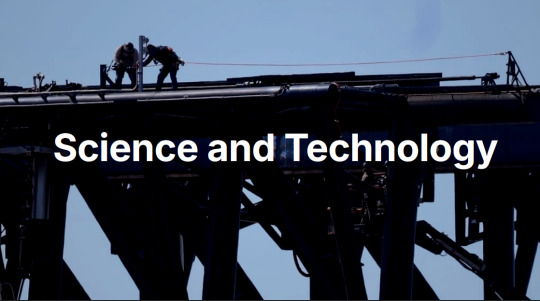
73. Space exploration hit new milestones
NASA’s Europa Clipper began a 2.9 billion kilometre voyage to Jupiter to investigate a moon that may have conditions for life; astronomers identified an ice world with a possible atmosphere in the habitable zone; and the James Webb Telescope found the farthest known galaxy. Closer to Earth, China landed on the far side of the moon, the Polaris Dawn crew made a historic trip to orbit, and Starship moved closer to operational use – and maybe one day, to travel to Mars.
74. Next-generation materials advanced
A mind-boggling year for material science. Artificial intelligence helped identify a solid-state electrolyte that could slash lithium use in batteries by 70%, and an Apple supplier announced a battery material that can deliver around 100 times better energy density. Researchers created an insulating synthetic sapphire material 1.25 nanometers thick, plus the world’s thinnest lens, just three atoms across. The world’s first functioning graphene-based semiconductor was unveiled (the long-awaited ‘wonder material’ may finally be coming of age!) and a team at Berkeley invented a fluffy yellow powder that could be a game changer for removing carbon from the atmosphere.
-via Fix The News, December 19, 2024
#renumbered this to reflect the article numbering#and highlight just how many stories of hope there are#and how many successes each labeled story contains#2024#good news#hope#hope posting#hopeposting#hopepunk#conservation#sustainability#public health#energy#quality of life#human rights#science and technology
3K notes
·
View notes
Text
Things Biden and the Democrats did, this week.
The Consumer Financial Protection Bureau put forward a new regulation to limit bank overdraft fees. The CFPB pointed out that the average overdraft fee is $35 even though majority of overdrafts are under $26 and paid back with-in 3 days. The new regulation will push overdraft fees down to as little as $3 and not more than $14, saving the American public collectively 3.5 billion dollars a year.
The Environmental Protection Agency put forward a regulation to fine oil and gas companies for emitting methane. Methane is the second most abundant greenhouse gas, after CO2 and is responsible for 30% of the rise of global temperatures. This represents the first time the federal government has taxed a greenhouse gas. The EPA believes this rule will help reduce methane emissions by 80%
The Energy Department has awarded $104 million in grants to support clean energy projects at federal buildings, including solar panels at the Pentagon. The federal government is the biggest consumer of energy in the nation. The project is part Biden's goal of reducing the federal government's greenhouse gas emissions by 65% by 2030. The Energy Department estimates it'll save taxpayers $29 million in the first year alone and will have the same impact on emissions as taking over 23,000 gas powered cars off the road.
The Education Department has cancelled 5 billion more dollars of student loan debt. This will effect 74,000 more borrowers, this brings the total number of people who've had their student loan debt forgiven under Biden through different programs to 3.7 Million
U.S. Agency for International Development has launched a program to combat lead exposure in developing countries like South Africa and India. Lead kills 1.6 million people every year, more than malaria and AIDS put together.
Congressional Democrats have reached a deal with their Republican counter parts to revive the expanded the Child Tax Credit. The bill will benefit 16 million children in its first year and is expected to lift 400,000 children out of poverty in its first year. The proposed deal also has a housing provision that could see 200,000 new affordable rental units
11K notes
·
View notes
Text
#2030kabharat#sdg 2030#sdg2030#sdg 17#sdgs#sdg goals#sdg6#sustainable development#sdg3#sdg4#Sustainable Development Goals#SDG Goals#Sustainable Development India Report#SDG in India#2030KaBharat#No poverty#Zero hunger#Good health and well being#Quality education#Gender equality#Clean water and sanitization#Affordabale and clean energy#Decent work and economic growth#Indusstry#Innovation#And Infrastructure#Reduce Inequality#Sustainable Cities And Communities#Responsible Consuption and production#Climate Action
0 notes
Text
AI in Education
With the rapid progression of technology, especially in Artificial Intelligence (AI), its integration into education becomes essential. This discussion delves into how AI can reshape education, enabling students to adapt to an evolving technological world and cultivate skills that distinguish them from machines.
The current education model often fails to offer personalized guidance to every student. Given projections that a majority of jobs will undergo automation by 2030, there's an urgent need to refine curriculums. Emphasis on STEM is paramount as we're in the midst of what's termed the fourth industrial revolution. Equally crucial is the nurturing of human-centric skills like emotional intelligence, creativity, interpersonal relations, and language mastery, ensuring students' adaptability.
A significant barrier in contemporary education is the high student-to-teacher ratio. This imbalance hinders in-depth skill cultivation, particularly those advocating lifelong learning, vital in a tech-centric future.
Integrating AI in education promises transformative benefits. AI isn’t poised to replace teachers but to augment their roles. It can offer individualized learning trajectories, letting students learn at their rhythm. This personalized approach allows educators to transition into facilitators, stimulating creativity and enthusiasm in the classroom. Additionally, AI can handle administrative tasks such as attendance and grading, freeing teachers to devote more time to student engagement.
While there might be challenges with AI in education not covered here, the imperative to adapt is clear. To stay relevant in an AI-driven epoch, infusing lifelong learning and contemporary tech in educational systems is non-negotiable. We also need to hone traits that make us uniquely human in this burgeoning technological landscape.
References
The Educational Intelligent Economy: Big Data, Artificial Intelligence, Machine Learning and the Internet of Things in Education. Tavis D. Jules and Florin D. Salajan. Emerald Publishing Limited, 2019. ProQuest Ebook Central. Marr, Bernard. “How Is AI Used In Education — Real World Examples Of Today And A Peek Into The Future.” Bernard Marr & Co, 2 Aug. 2021. Link. Moye, John N. A Machine Learning, Artificial Intelligence Approach to Institutional Effectiveness in Higher Education. Emerald Publishing Limited, 2019. ProQuest Ebook Central.
0 notes
Text
Delve into the transformative role of Artificial Intelligence (AI) in reshaping education and learning.
Organized by UNESCO and the UN Group of Friends for Education and Lifelong Learning, the International Day of Education 2025 will delve into the transformative role of Artificial Intelligence (AI) in reshaping education and learning.
Under the theme of International Day of Education 2025, "Preserving human agency in a world of automation", UNESCO is organizing a global event in New York to spotlight the dynamic interplay between AI and education.
How AI technologies are revolutionizing teaching and learning practices, while education, in turn, serves as a guiding force to ensure that AI is ethical, inclusive, and aligned with human values?
More particularly, the event aims to:
Encourage reimagining education in an age of AI and welcome new and improved possibilities for teaching, learning, school environments, curriculum, educational organization and assessment.
Promote critical AI literacies by discussing how educators and learners can be empowered with the competencies needed to understand, assess and influence AI technologies, in line with the guidance contained in the UNESCO AI Competency Frameworks for Teachers and Students.
Advocate for a human-centered approach to AI integration in education, i.e. an approach that prioritizes human control, transparency, and accountability in AI design and deployment, while ensuring it serves to expand human capabilities, uphold human dignity and agency, and promote justice and sustainability throughout its entire life cycle.
Ensure that AI complements, rather than replaces, the essential human elements of learning, including the cultivation of in-person relationships and emotional intelligence.
Related Sites and Documents
UNESCO Website

#education 2030#Artificial Intelligence and Education#education#unesco#Challenges and Opportunities#24 january#future of education#international day of education#webcast#higher education#primary education#tertiary education#secondary education#educators#local teachers
0 notes
Text
Award-winning journalist, Alex Newman, sheds light on a 2013 UN report asserting that meat, chicken and traditional agriculture are "not sustainable", and that a "major propaganda campaign" is needed to persuade people to eat insects instead.
"So how are they gonna get people to eat bugs? Well, a combination of propaganda, indoctrinating children and making you very, very hungry... The goal, folks, is not to save the planet. It's not about global warming. It's not about sustainable development. It's about enslaving humanity."
"They want to wipe out small and medium sized producers, centralise food control in the hands of mega corporations in bed with the mega governments. They want to move the population into the mega cities, and ultimately bring about this Great Reset and what they call the New World Order."
This is Agenda 21 to which 179 nations signed up to in 1992. 🤔
#pay attention#educate yourselves#educate yourself#knowledge is power#reeducate yourself#reeducate yourselves#think about it#think for yourselves#think for yourself#do your homework#do your own research#do some research#ask yourself questions#question everything#agenda 2030#alex newman#news#food supply chain#food supply
582 notes
·
View notes
Text
Technical and Vocational Education Market Segmented On The Basis Of Course Type, End-User, Learning Mode, Organization, Region And Forecast 2028: Grand View Research Inc.
San Francisco, 20 Oct 2023: The Report Technical And Vocational Education Market Size, Share & Trends Analysis Report By Course Type (STEM, Non-STEM), By Learning Mode (Offline, Online), By End-user, By Organization, And Segment Forecasts, 2022 – 2030 The global technical and vocational education market size is anticipated to reach USD 1.43 trillion by 2030, according to a new report by Grand…
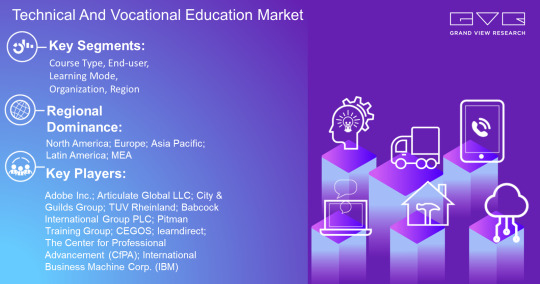
View On WordPress
#Technical and Vocational Education Industry#Technical and Vocational Education Market#Technical and Vocational Education Market 2022#Technical and Vocational Education Market 2030#Technical and Vocational Education Market Revenue#Technical and Vocational Education Market Share#Technical and Vocational Education Market Size
0 notes
Text
Six pathways to sustainable development.
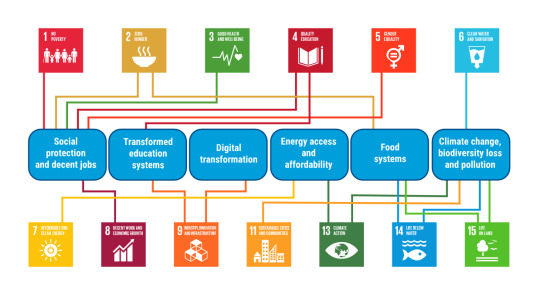
UNCTAD calculated the costs along six key “transition pathways” that can amplify efforts and speed up progress towards the 2030 Agenda for Sustainable Development
Climate change, biodiversity loss and pollution: Includes strengthening commitments under the Paris Agreement, improving ecosystem management, reducing the effects of disasters and integrating climate and biodiversity actions.
Energy transition: Includes transitioning to renewable energy and improving energy efficiency, providing universal access to affordable and clean electricity, including clean cooking.
Food systems: Includes action to eliminate hunger and malnutrition, shift from environmentally harmful practices, protect biodiversity and achieve climate neutrality.
Education transformation: Includes investing in education, early childhood development and care, and enhancing scientific research.
Social protection and decent jobs: Includes providing universal health care and social protection, promoting gender equality and inclusion in society and decision-making, advancing decent jobs and driving prosperity.
Inclusive digitalization: Includes progressing towards universal digital access and use of digital resources, equal access to banking and financial services and higher technology activities.
In addition to these six pathways, UNCTAD is working with UN Women to estimate the cost of achieving gender equality for certain SDG indicators.
#UNCTAD#SDG Costing#2030 Agenda for Sustainable Development#agenda 2030#speed up progress#Education transformation#decent jobs#Social protection#Inclusive digitalization#Food systems#Energy Transition#pollution#climate change#biodiversity
1 note
·
View note
Text
Amplifying Impact: Make It Monthly 2024

View On WordPress
#afforestation areas#biodiversity#CanadaHelps#Citizen Science#community collaboration#Dog Sledding#education#environmental conservation#George Genereux Urban REgional Park#health and wellness#Indigenous knowledge#Nature Exploration#outdoor recreation#Participaction#physical activity#Richard St. Barbe Baker AFforestation ARea#Saskatchewan#Saskatoon#sustainability#sustainable practices#Vision 2030#WinterCity YXE
0 notes
Text
5G and IoT: The Next Era of Connectivity- What's in Store!
Fast-track into 2030: Witness the unbeatable combo of 5G and IoT, future-proofing connectivity with unprecedented speed, efficiency, and endless possibilities. 🚀 #5G #IoT #Connectivity2030
Table of Contents Analysing the Profound Implications of 5G and IoT on Diverse Sectors and their Capacity to Catalyse Industry-Wide Revolution Mobility: Reshaping Transportation with 5G and IoT Autonomous Driving: Safely Navigating the Roads of Tomorrow Smart Parking: Streamlining the Search for Parking Spaces Ride Hailing: Enhancing Efficiency and Customer Experience Healthcare:…

View On WordPress
#5g#Connectivity 2030#Digital Transformation#Digital Twins#Efficinecy#Financial Education#FinTech#Future Proofing#Healthcare Advancements#Innovation#Iot#Mobility#Online Shopping#Retail#speed#Unbeatable Combo
0 notes